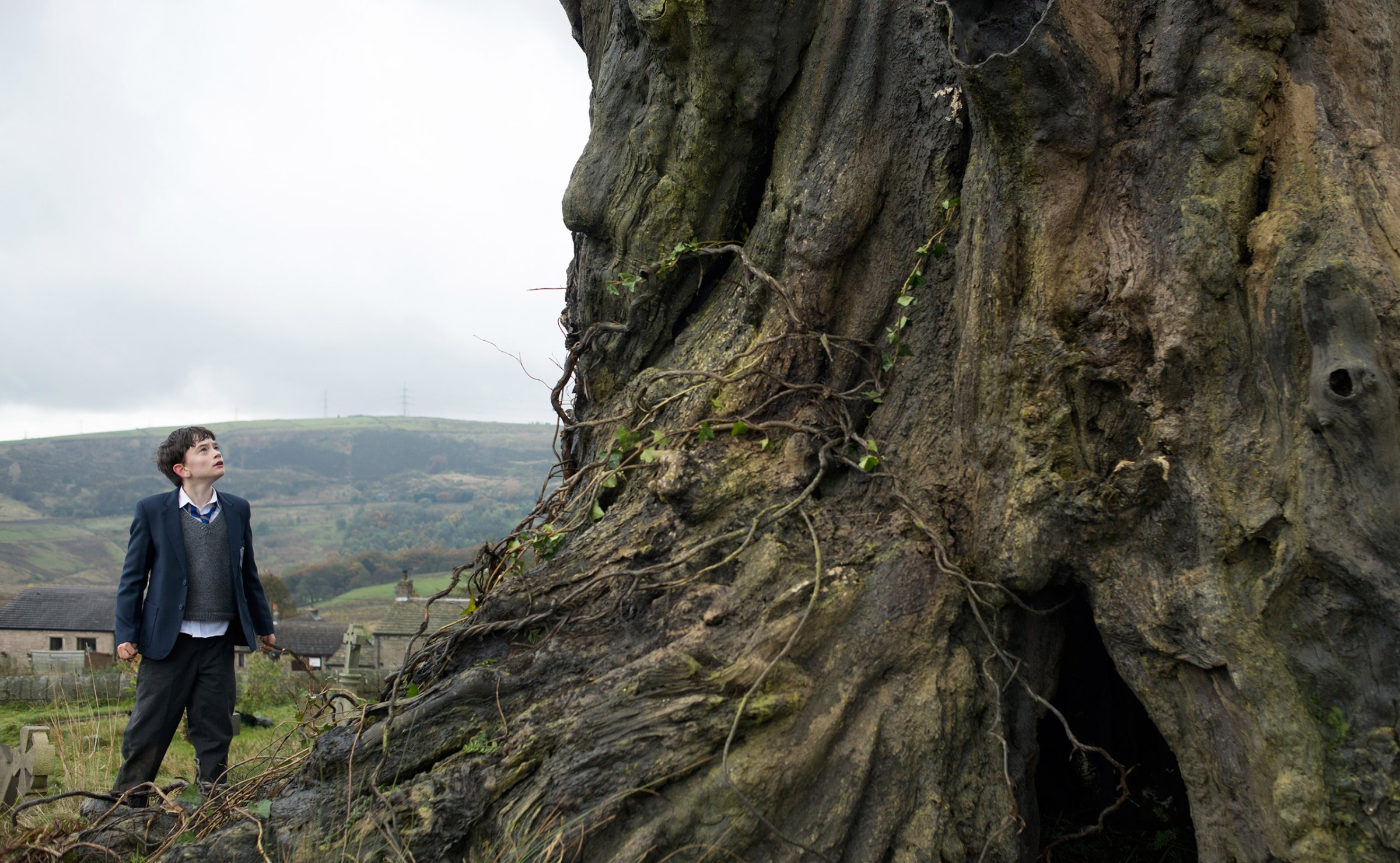
Children aren’t very good at seeing outside of themselves. If they’re doing the work of being children, selfishness comes with the territory–and learning that others feel things keenly too is where adulthood begins.
That’s the idea captured in A Monster Calls, in which a gnarly treelike beast (voiced by Liam Neeson) pays a series of visits to 12-year-old Conor (played by Lewis MacDougall, a young actor with quizzical, perceptive eyes). Conor is going through a rough patch: He’s bullied at school. He dislikes his uptight grandmother (Sigourney Weaver, left), whom he sees as increasingly intrusive. And his mother (Felicity Jones), who is raising him by herself, has been ill for a long time and isn’t getting better. Conor’s monster, a surly, growling personification of childhood anger, tells the boy three morally ambiguous stories–and asks him to cap them off with one honest story of his own.
A Monster Calls–directed by J.A. Bayona and adapted by Patrick Ness from his own novel–is meticulously and sensitively made, though its best moments may be the lovely but intense watercolor-toned interstitial animated sequences that illustrate the monster’s thorny spiritual allegories, cartoons for grownups rather than for little ones. But then A Monster Calls isn’t so much for kids as it is for grownups. It’s a reminder of the time when we, too, thought only of ourselves–and found it too much to bear.
More Must-Reads from TIME
- How Donald Trump Won
- The Best Inventions of 2024
- Why Sleep Is the Key to Living Longer
- Robert Zemeckis Just Wants to Move You
- How to Break 8 Toxic Communication Habits
- Nicola Coughlan Bet on Herself—And Won
- Why Vinegar Is So Good for You
- Meet TIME's Newest Class of Next Generation Leaders
Contact us at letters@time.com